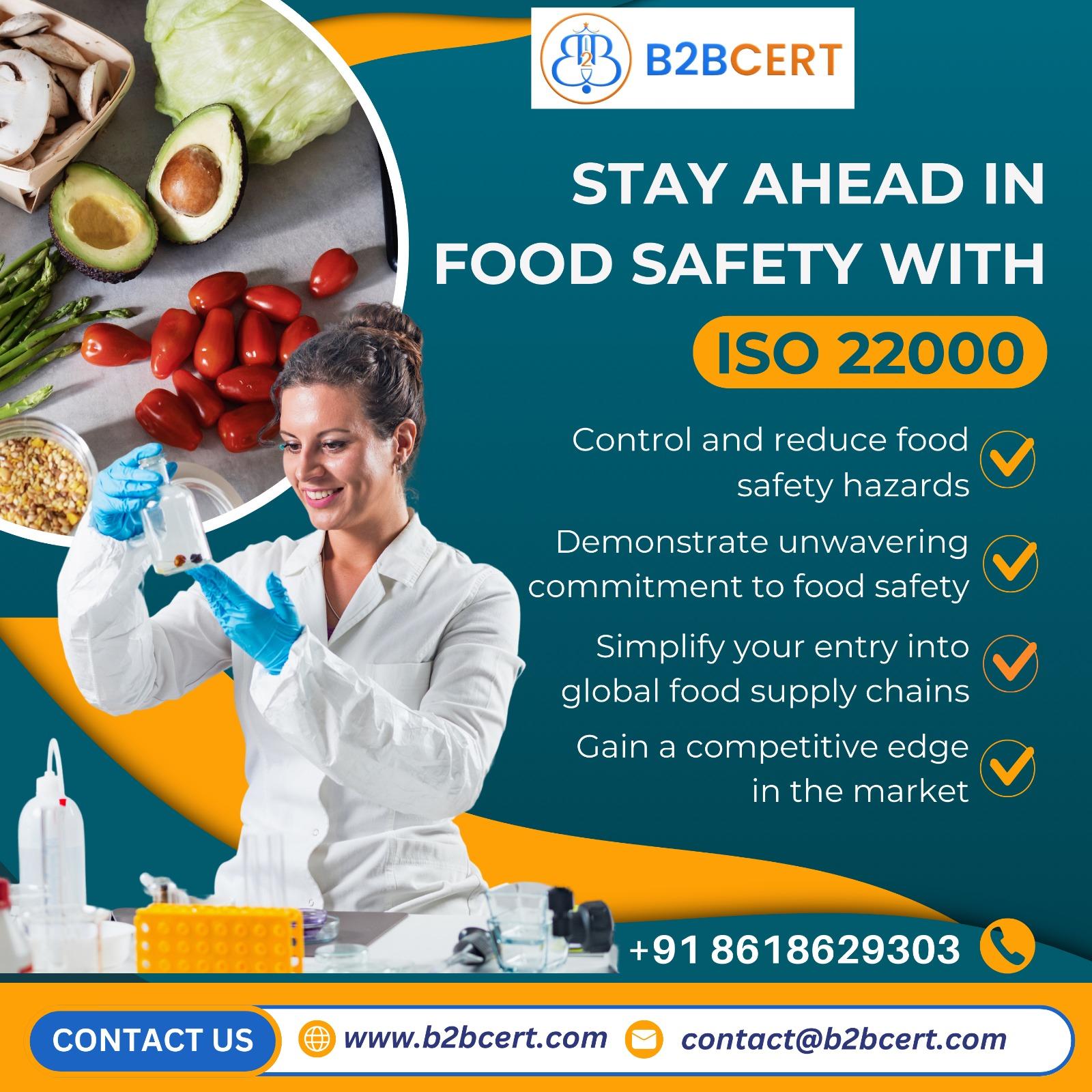Continual improvement is the cornerstone of any effective management system, especially in the context of ISO 22000 Certification in Bangalore. This internationally recognized standard for food safety management ensures that organizations consistently meet customer and regulatory requirements. Internal audits and management reviews are essential tools that help food businesses evaluate the effectiveness of their systems, identify opportunities for improvement, and maintain compliance with ISO 22000 requirements.
Understanding Internal Audits in ISO 22000
An internal audit is a systematic, independent, and documented process used to assess whether an organization’s Food Safety Management System (FSMS) is effectively implemented and maintained. Internal audits help determine if the processes conform to both the ISO 22000 standard and the company’s internal procedures.
ISO 22000 Consultants in Bangalore often guide organizations through the process of designing and conducting effective internal audits. The goal is to not only check compliance but also to foster a culture of continual improvement.
Steps to Conduct Effective Internal Audits
-
Establish an Audit Program
The first step is developing an audit schedule that covers all processes and departments. The frequency of audits can depend on process complexity, customer feedback, past audit results, and risk levels. Organizations offering ISO 22000 Services in Bangalore often recommend conducting audits at least once a year for critical processes. -
Define Audit Objectives and Scope
Clearly outline what the audit aims to achieve. The scope may include specific areas such as production, quality control, procurement, or supplier management. The objectives typically focus on evaluating compliance, effectiveness, and opportunities for improvement. -
Select Qualified Auditors
Auditors should be trained and competent to assess FSMS requirements. Independence is crucial—auditors should not audit their own work. Many businesses rely on ISO 22000 Consultants in Bangalore for auditor training to ensure impartial and effective evaluations. -
Prepare the Audit Checklist
An audit checklist helps ensure that all relevant clauses of ISO 22000 are covered. It includes questions related to hazard analysis, operational controls, corrective actions, traceability, and emergency preparedness. -
Conduct the Audit
During the audit, auditors gather evidence through interviews, document reviews, and observation of operations. Findings are recorded objectively, highlighting both conformity and non-conformity. -
Report Findings
The audit report should summarize the results, identifying strengths, weaknesses, and non-conformities. It should also suggest corrective actions for addressing any gaps in the system. -
Take Corrective Actions
After identifying non-conformities, the next step is implementing corrective actions. The organization must determine the root cause, correct the issue, and ensure it does not recur. -
Follow-Up
Follow-up audits or reviews verify whether corrective actions were effective. This continuous cycle promotes ongoing improvement and alignment with ISO 22000 standards.
The Role of Management Reviews in Continual Improvement
While internal audits evaluate operational effectiveness, management reviews focus on strategic oversight. A management review is a formal evaluation conducted by top management to ensure the FSMS remains suitable, adequate, and effective.
ISO 22000 in Bangalore requires organizations to hold periodic management reviews—typically once or twice a year. These reviews assess performance data and align business goals with food safety objectives.
Key Inputs to Management Reviews
According to ISO 22000 guidelines, management reviews should include inputs such as:
-
Results of internal and external audits
-
Customer complaints and feedback
-
Performance of corrective and preventive actions
-
Changes in products, processes, or regulations
-
Supplier and subcontractor performance
-
Achievement of food safety objectives
By analyzing these inputs, management can make informed decisions that strengthen the FSMS.
Outputs of Management Reviews
The outputs of management reviews often include:
-
Updated food safety policies and objectives
-
Identification of new risks or opportunities
-
Resource allocation for improvements
-
Action plans for continual enhancement
These outputs are vital for maintaining certification and demonstrating a commitment to food safety excellence.
Integration of Audits and Reviews for Continual Improvement
Internal audits and management reviews are not standalone processes—they work together to drive continual improvement. Internal audits provide the data and insights needed for management reviews, while management reviews establish strategic direction and allocate resources based on audit findings.
For example, if audits reveal recurring issues in supplier quality, management can decide to enhance supplier evaluation criteria or increase training programs. This dynamic feedback loop ensures that the FSMS evolves with changing conditions and stakeholder expectations.
Benefits of Effective Internal Audits and Management Reviews
Organizations that conduct robust internal audits and management reviews gain several benefits, including:
-
Improved compliance with ISO 22000 standards
-
Enhanced operational efficiency and reduced risks
-
Increased customer trust through consistent food safety performance
-
Proactive identification of non-conformities before external audits
-
Continuous organizational learning and improvement
Partnering with professional ISO 22000 Consultants in Bangalore ensures that these processes are systematic, insightful, and aligned with the certification’s requirements.
Conclusion
Conducting effective internal audits and management reviews is essential for achieving and maintaining ISO 22000 Certification in Bangalore. These processes enable organizations to measure their performance, identify gaps, and implement improvements that enhance food safety and overall business resilience.
For companies seeking expert guidance, B2Bcert offers comprehensive ISO 22000 Services in Bangalore—from system implementation and internal auditor training to certification support and continual improvement strategies. With professional assistance, your organization can achieve food safety excellence and sustained growth in today’s competitive market.



